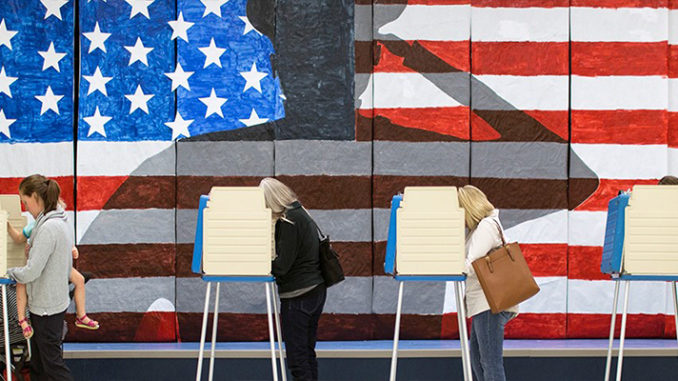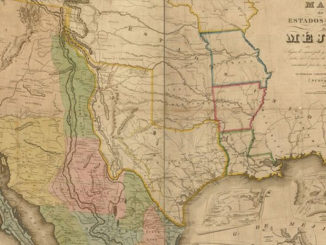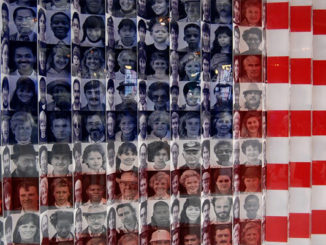
by Daniel Stid
Civil society can act directly to solve critical problems, but its indirect effect might be just as important: allowing individuals to participate, collaborate, and—in the process—develop into citizens capable of upholding democracy.
In using sociologist and political scientist Alexis de Tocqueville as a touchstone for this essay series on American civil society, it is tempting to emphasize the affirmations and gloss over the challenges he presents to us. But we need to reckon with the full sweep of his thinking about civil society, especially with what he saw as its essential, albeit indirect, role in fostering democratic citizenship.
Most of us will recall how Americans’ unique aptitude for forming what Tocqueville termed public or civil associations—the precursors of today’s nonprofit and voluntary organizations—left a deep impression on the Frenchman when he visited the United States in the 1830s. As he noted in Democracy in America:
Americans of all ages, conditions and all dispositions constantly unite together. … To hold fetes, found seminaries, build inns, construct churches, distribute books, dispatch missionaries to the antipodes. They establish hospitals, prisons, schools by the same method. Finally, if they wish to highlight a truth or develop an opinion by the encouragement of a great example, they form an association.
This well-known observation, however, is just the starting point for Tocqueville’s assessment.
Tocqueville went on to describe two roles he saw associations playing in the United States. The first was to provide a means for solving collective problems: “Among democratic nations all citizens are independent and weak; they can achieve almost nothing by themselves and none of them could force his fellows to help him. Therefore they sink into a state of impotence, if they do not learn to help each other voluntarily.” But by joining forces in an association, individuals could solve the collective action problem. This first role is akin to the conception of nonprofits that prevails today, one that emphasizes the importance of their direct contributions or impact.
The second role that Tocqueville saw associations playing is less familiar to us; indeed, there is a sense in which we have lost sight of it. This role was indirect: drawing individuals out of their private concerns, where they would otherwise stay focused and striving, and enabling them to be part of something larger than the circumstances of their own existence. In doing this, they invariably had to rub elbows and learn to work with others with different interests and points of view. And in this way, those participating in associations became better collaborators, leaders, and citizens. “The only way opinions and ideas can be renewed, hearts enlarged, and human minds developed,” Tocqueville observed, “is through the reciprocal influence of men upon each other.”
To appreciate the importance that Tocqueville placed on both the direct and indirect roles of associations, we need to remember his real doubts about whether democracy could be sustained in the United States. The country was for him a precarious political experiment due to the volatile combination of unprecedented equality and the lack of traditional mediating institutions. Tocqueville feared a scenario in which the great mass of Americans, becoming increasingly isolated in their individual pursuits, would give up any claims on being citizens who were concerned with the well-being of their fellow man and the public life they shared. Instead, they would submit to a paternalistic and despotic central government that would rule over them as a shepherd would “a flock of timid and hardworking animals.”
Tocqueville believed that associations operating outside the sphere of government and economic life—what we now refer to as civil society—were essential bulwarks against any incipient democratic decay and despotism. The direct role these associations played in solving problems meant that they could be tackled without having to involve the federal or state government. Tocqueville was skeptical that government above the local township level could do much to solve problems—the national government was too far removed, and any action it would take would be uninformed and heavy handed, whereas state governments were too apt to be swayed by petty concerns and volatile majorities. Townships and voluntary associations were the means through which citizens who knew and trusted each other could solve problems, as well as broaden their individual perspectives and develop their civic skills.
While the rough-and-tumble nature of these local institutions might lead to some messiness and occasional failure, Tocqueville warned against the government acting in a top-down manner. “What political power could ever substitute for the countless small enterprises which American citizens carry out daily with the help of associations?” he asked. “The more [government] replaces associations, the more individuals will need government to help as they lose the idea of association. This is the endless vicious circle of cause and effect.” The indirect contribution of associations—that which broadened the perspective and capabilities of participating citizens—is no less important than their direct impact in combatting this cycle; indeed, the former was and remains a necessary complement to the latter.
It was for this reason that Tocqueville emphasized the importance of understanding the contributions of associations to democracy in America. “In democratic countries, the knowledge of how to form associations is the mother of all knowledge since the success of all the others depends on it.” But how can we apply this belief? How can we regain a firm grasp on “the mother of all knowledge” to put it to better use today? Here are three steps we all can take:
First, we need to reset the balance in how we think and talk about the contributions of nonprofits. Alas, as the government agencies and foundations that fund nonprofits have zeroed in on defining and tracking their direct impact, the attention we pay to nonprofits’ indirect role in fostering democratic citizenship has faded. Nonprofits are much more than instruments for direct impact. To be sure, professionalism, strategic plans, and performance metrics are good things for them to develop. But so are volunteers and individual donors, board members with diverse perspectives, and community-wide coalitions. It is also helpful for nonprofits to listen—really listen—to the voices of the people they are supporting, and to encourage and enable their beneficiaries to bring their voices to bear in the public square. These approaches can lead to amateurism, indeterminacy, tensions, and conflict, but they also produce more and better citizens for democracy.
Second, we should stop assuming that if we can just scale and replicate the right high-performing nonprofits, and/or feed enough money to effective advocacy groups, we can solve major, multifaceted social problems. Effectively addressing faltering public schools, gun violence, climate change, and problems like them will require much broader and more engaged movements, built by capable and committed people. These movements, in turn, will rely heavily on the indirect effect of nonprofits and voluntary associations to develop people willing and able to participate in them.
Finally, while we are at it, we might also take some cues from observers like Yuval Levin, Heather Gerken, David Brooks, and James and Deborah Fallows. From ideologically diverse vantage points, they have all discerned the need for and fruitfulness of experiments in our laboratories of democracy at the state and local levels. They are observing how entrepreneurs from multiple sectors are coming together in varied associational ways to solve problems in ways that no longer seem possible in our polarized and exhausted national politics. Not surprisingly, nonprofit and civic leaders are serving as the catalysts for this collective problem-solving. They are updating and remixing Tocqueville’s diagnosis and prescription—and not a moment too soon!
Daniel Stid is director of the Madison Initiative at the William and Flora Hewlett Foundation.



